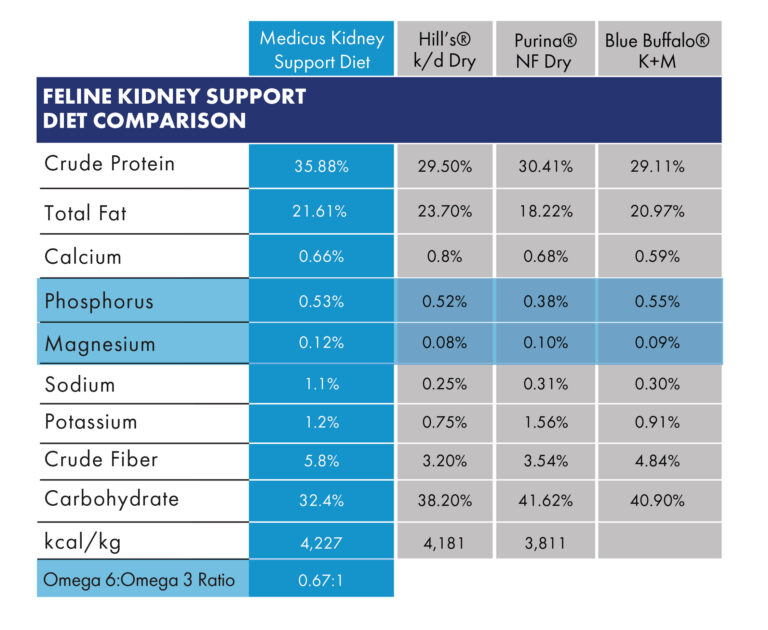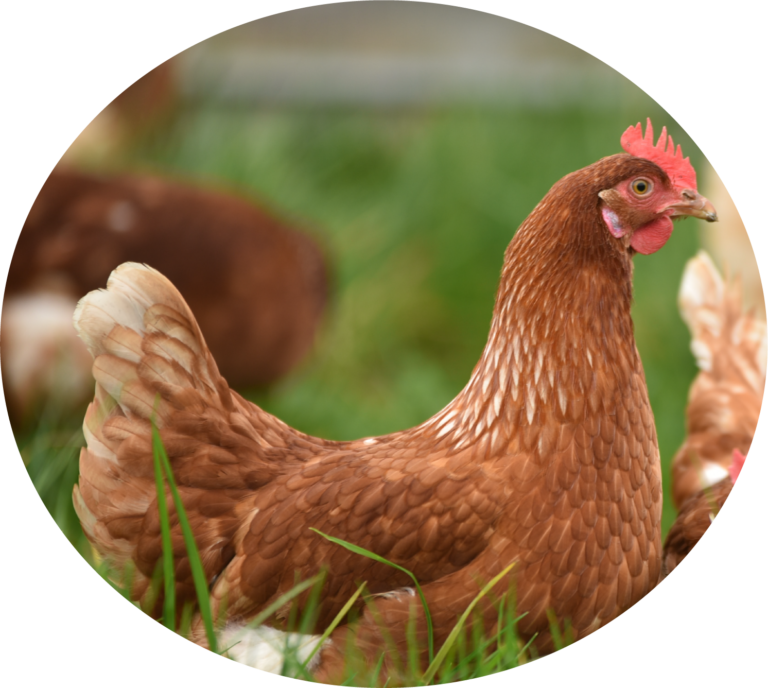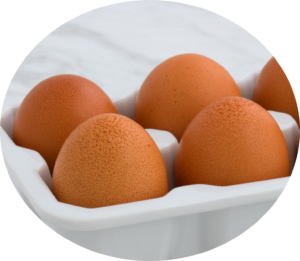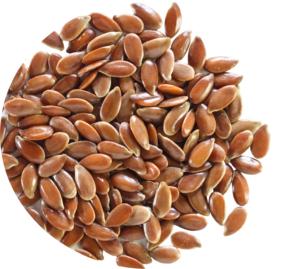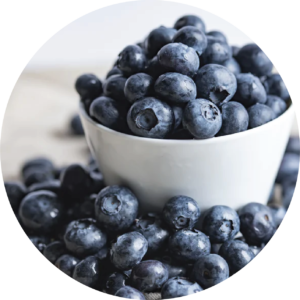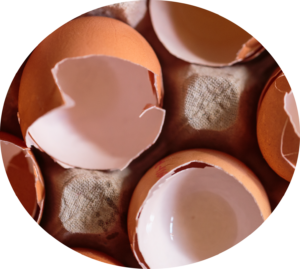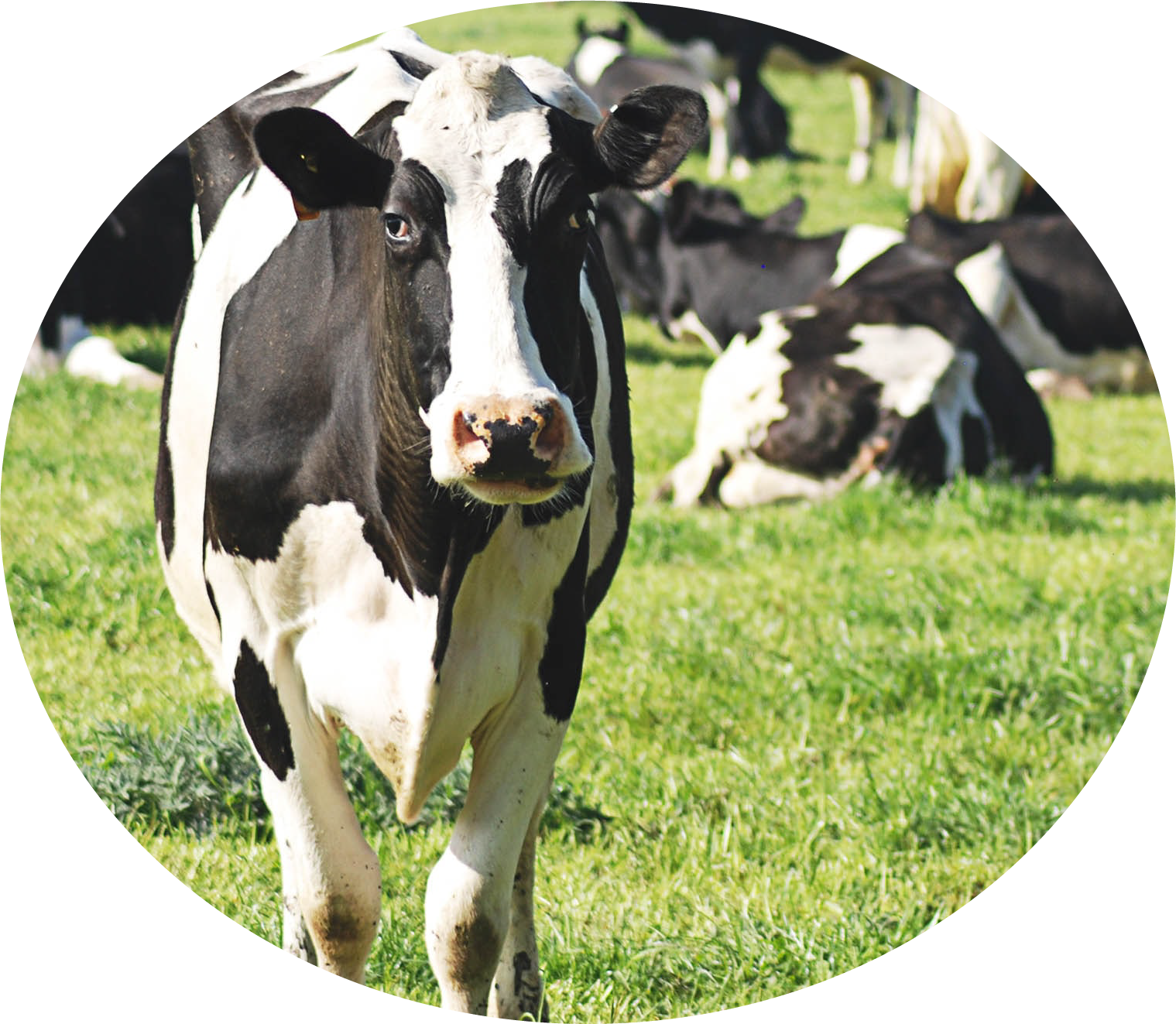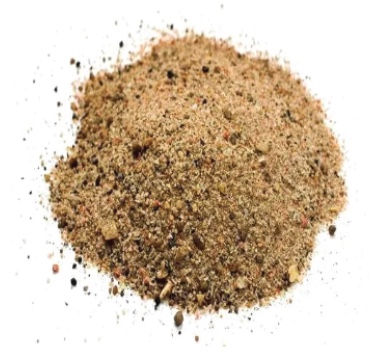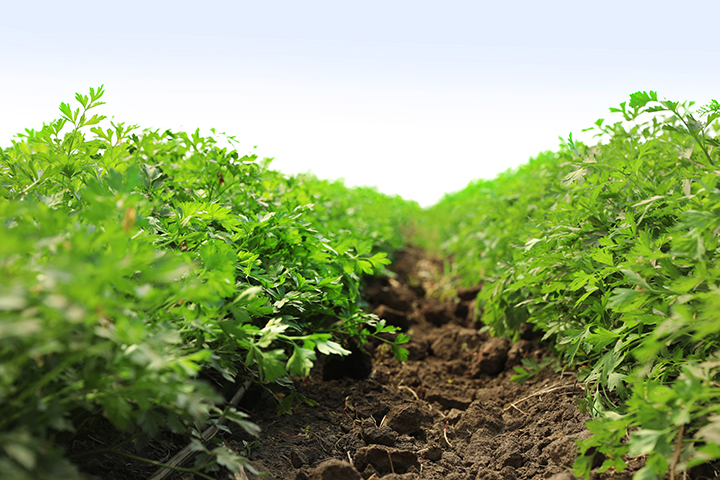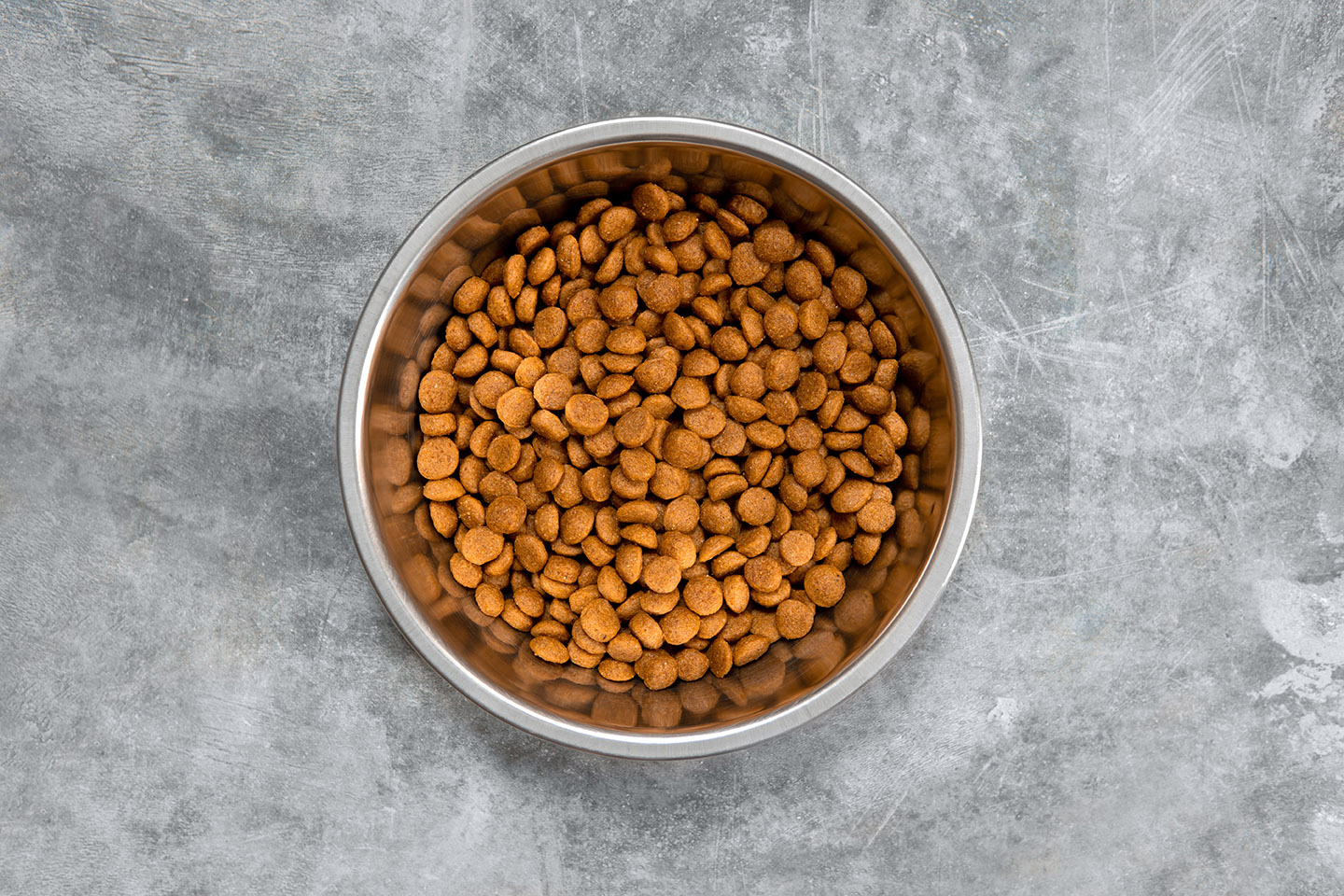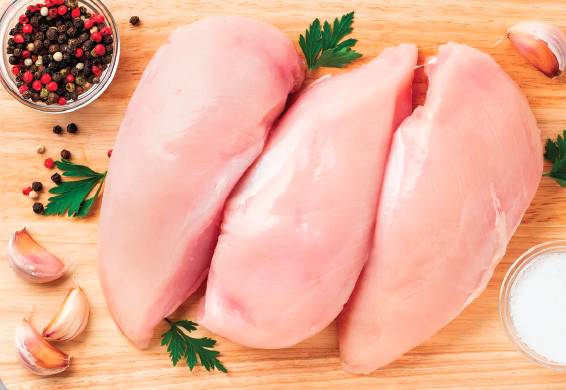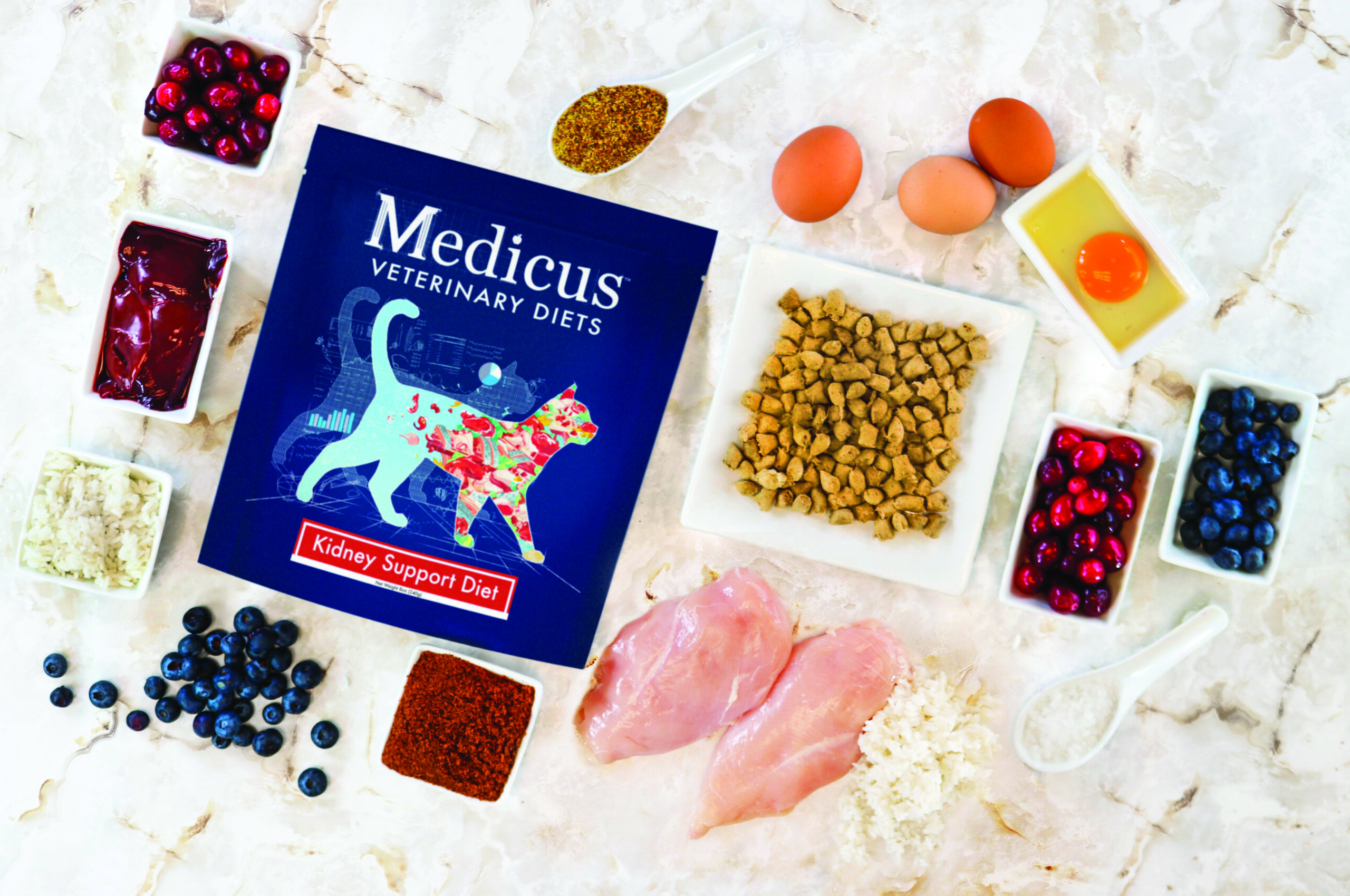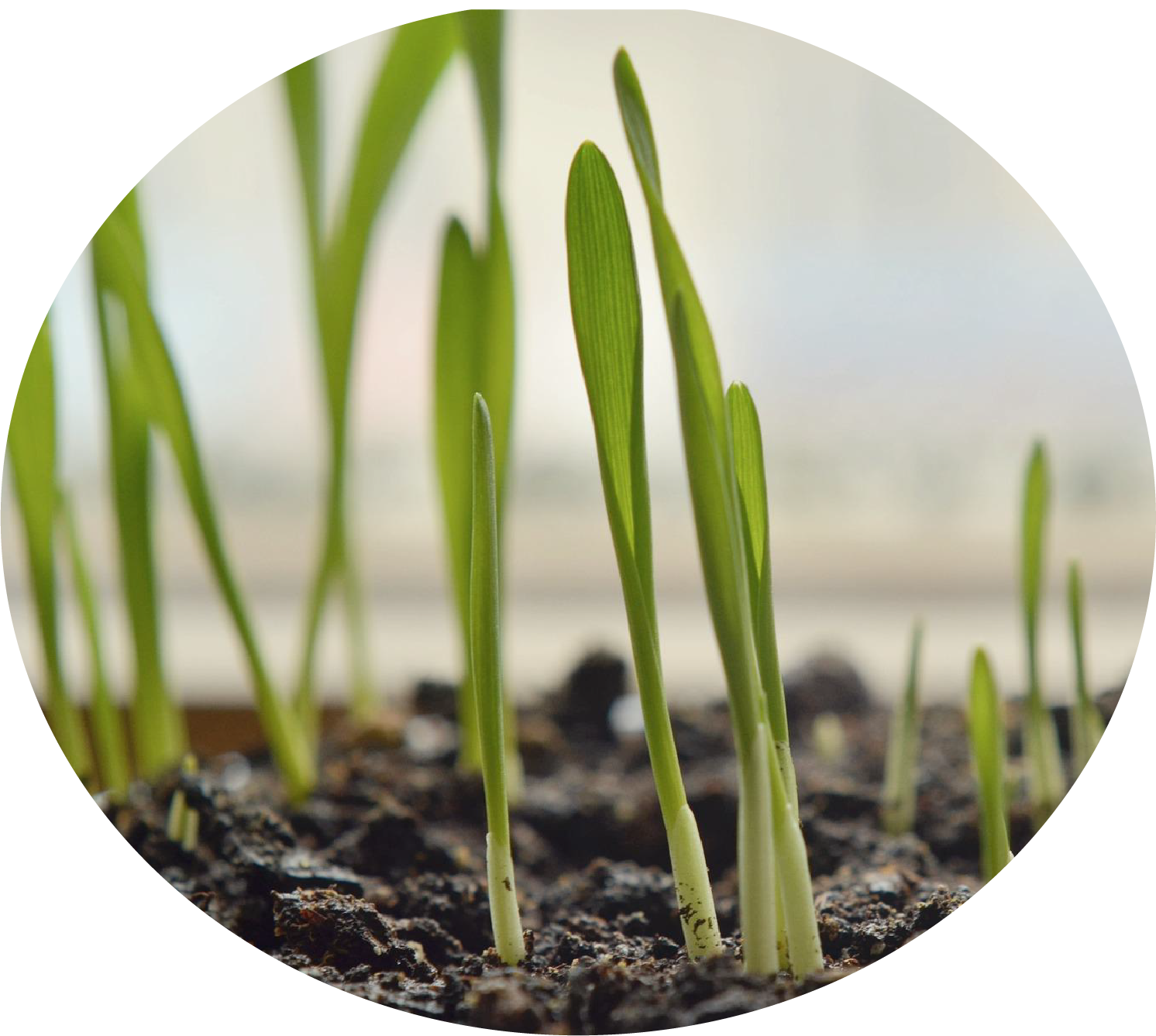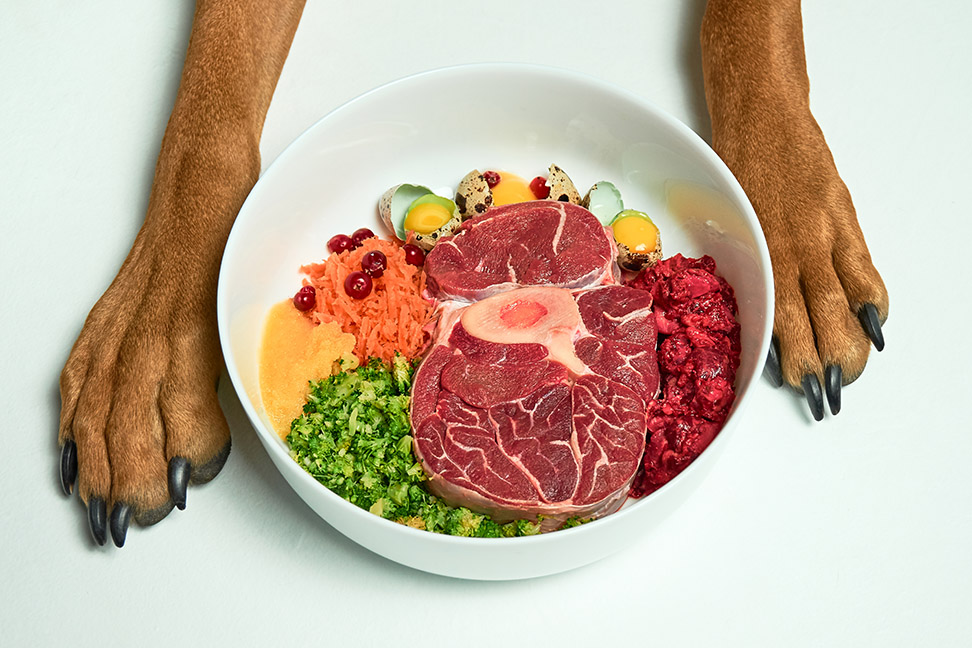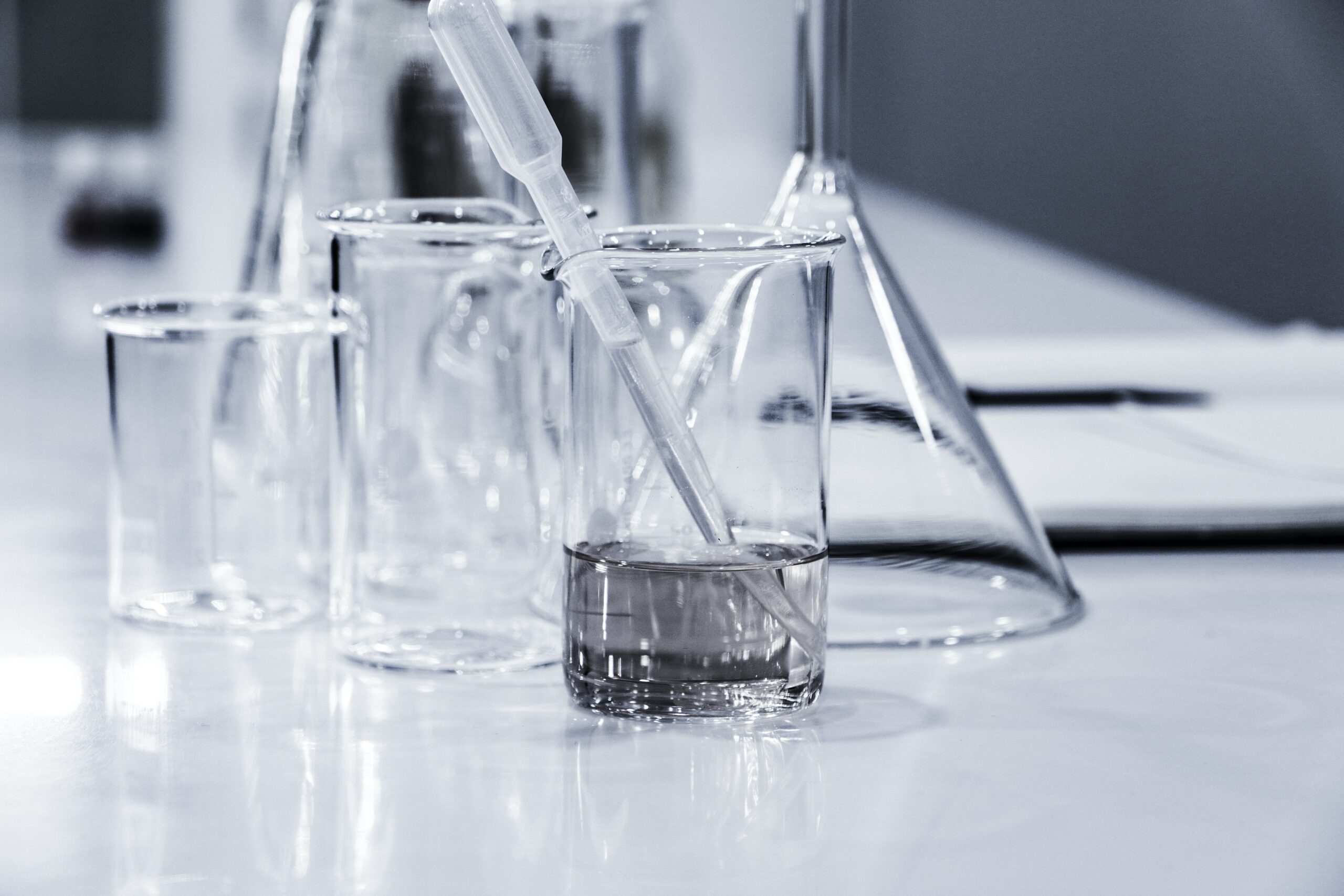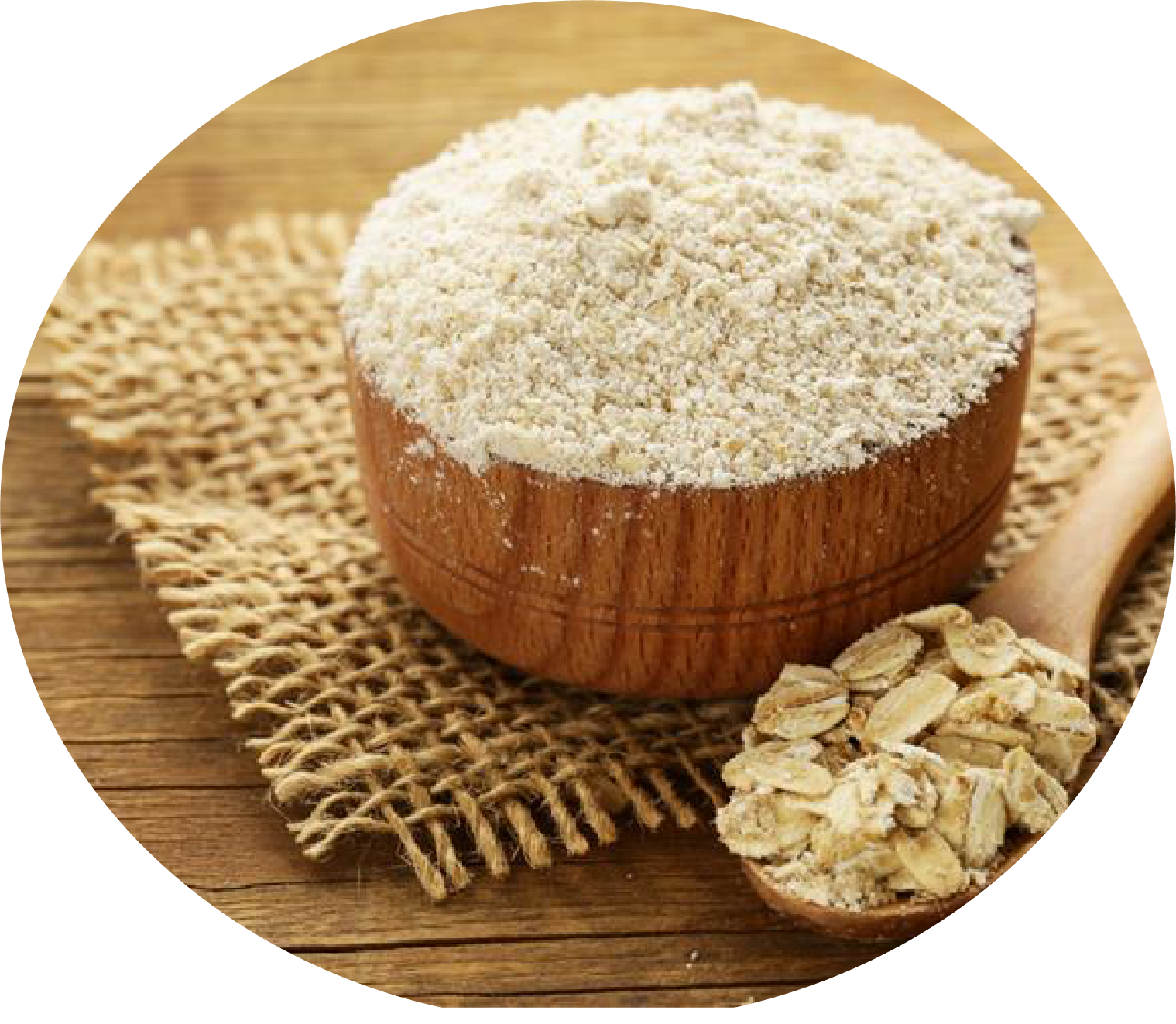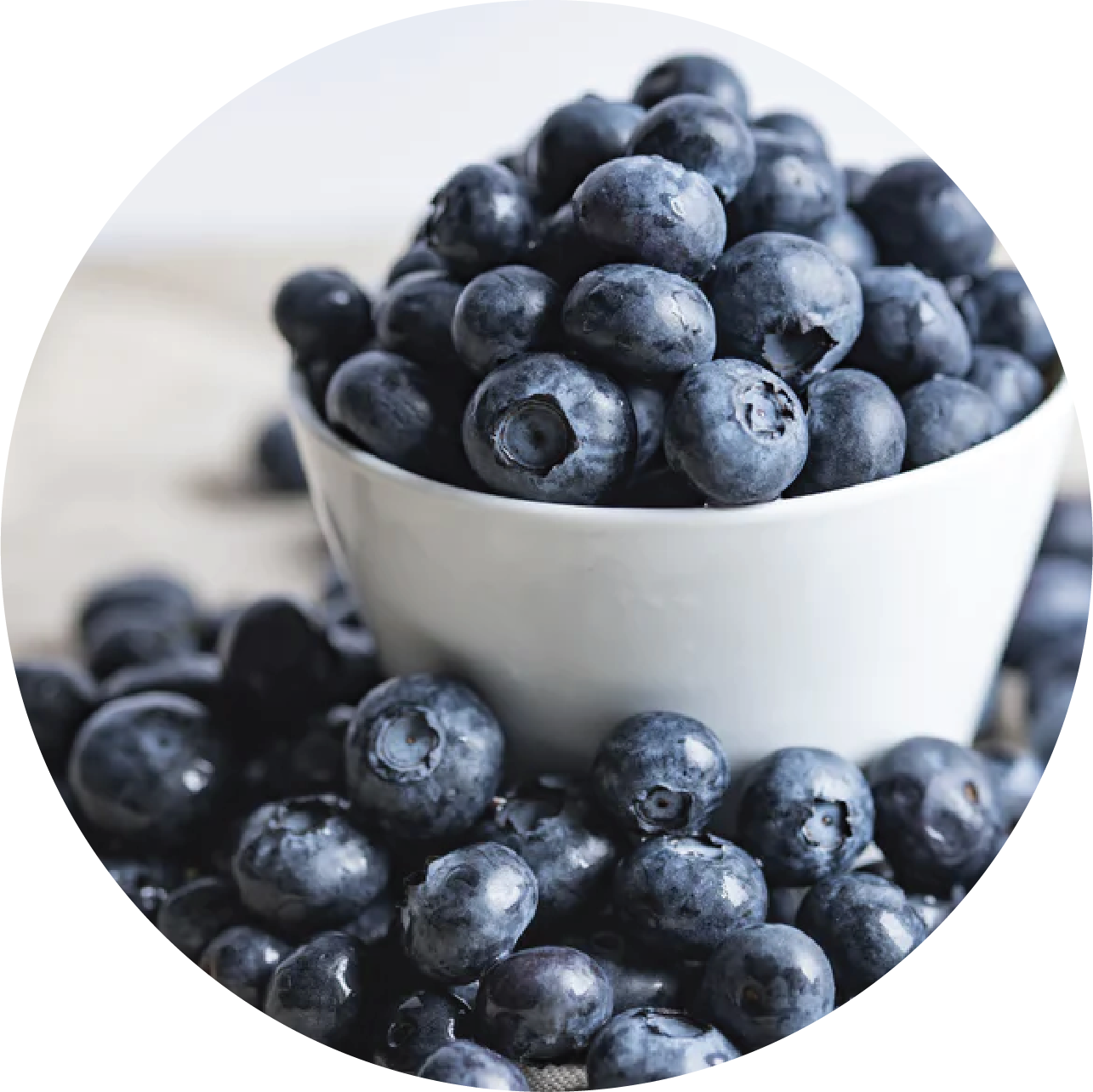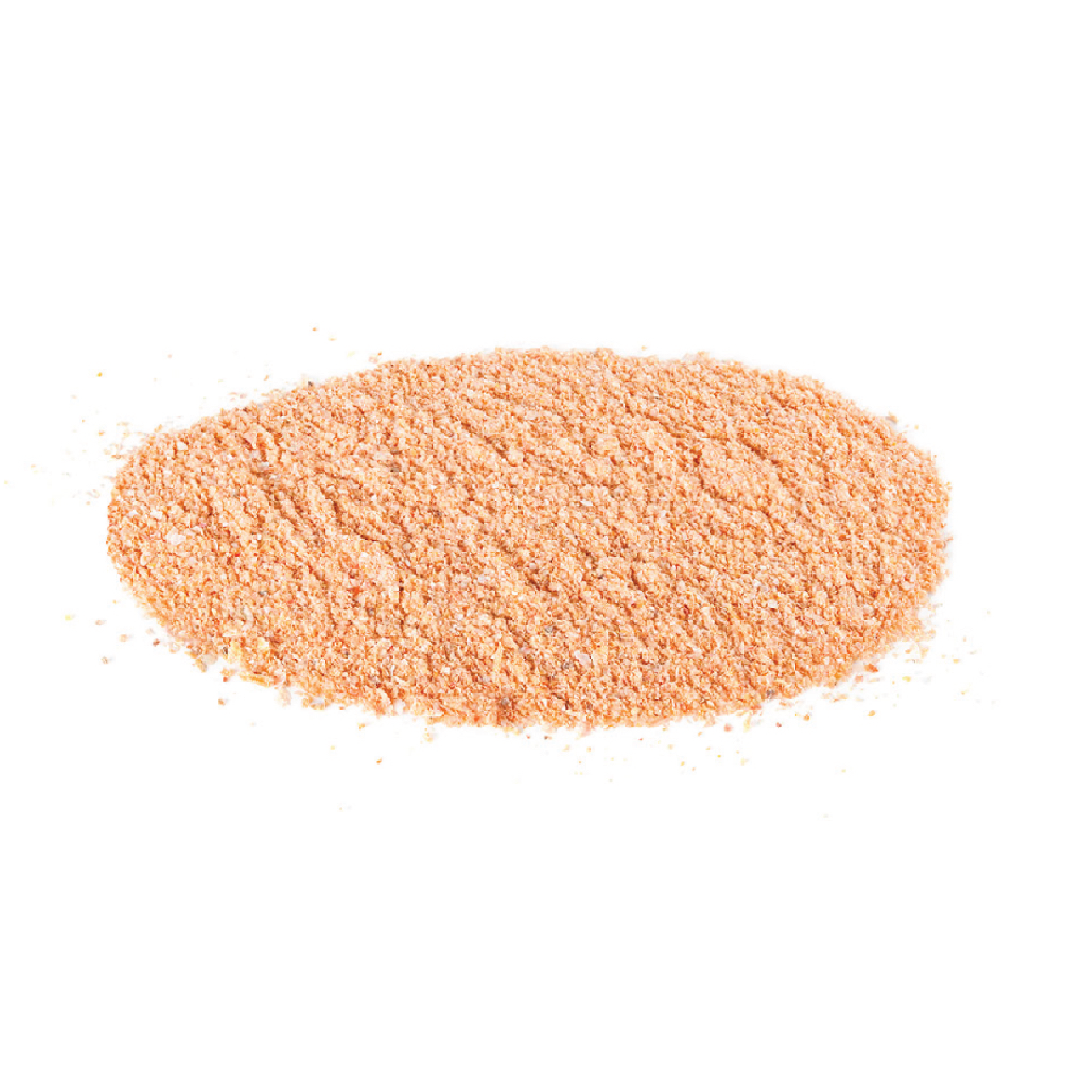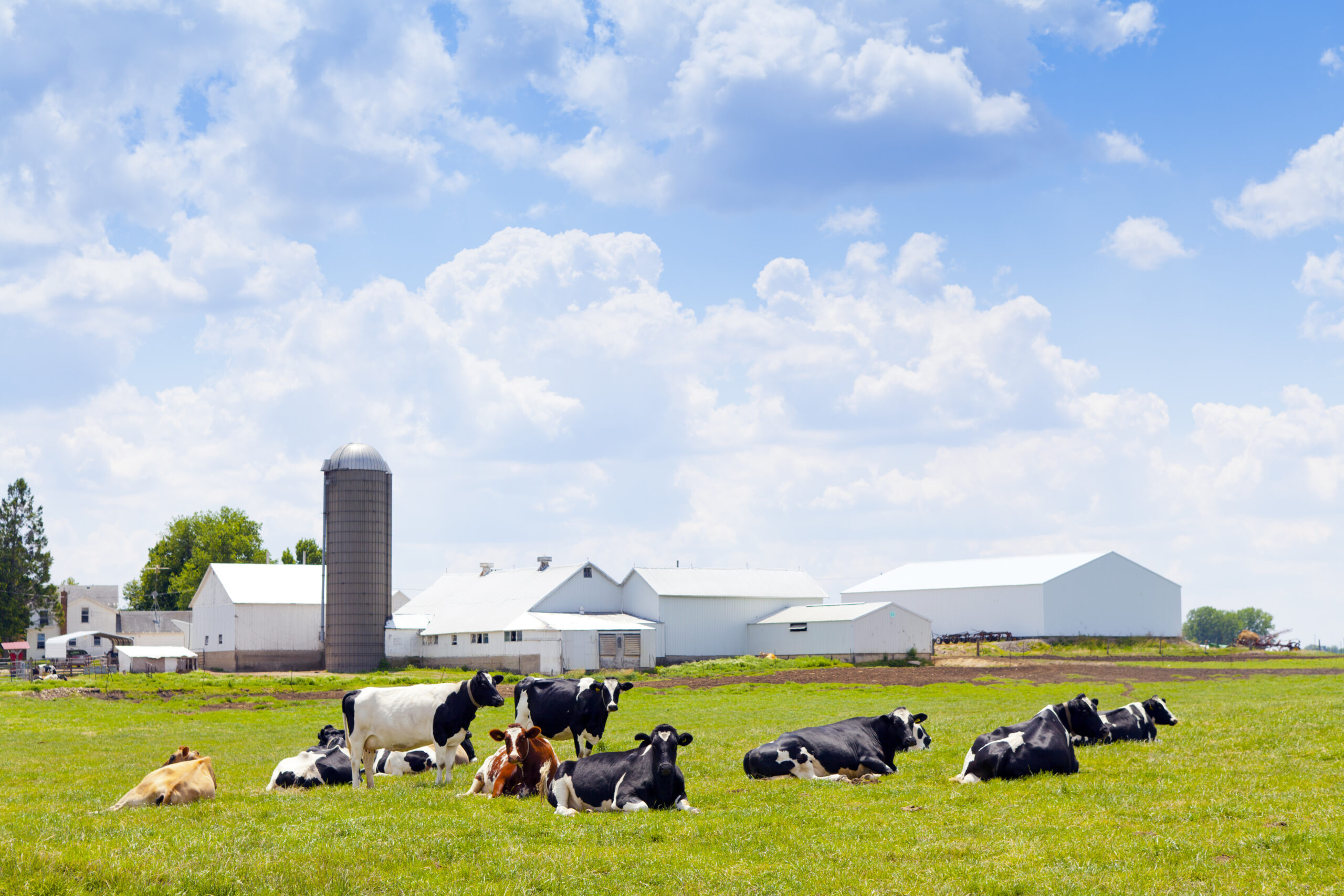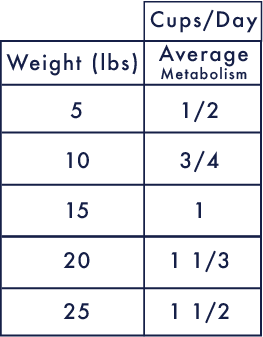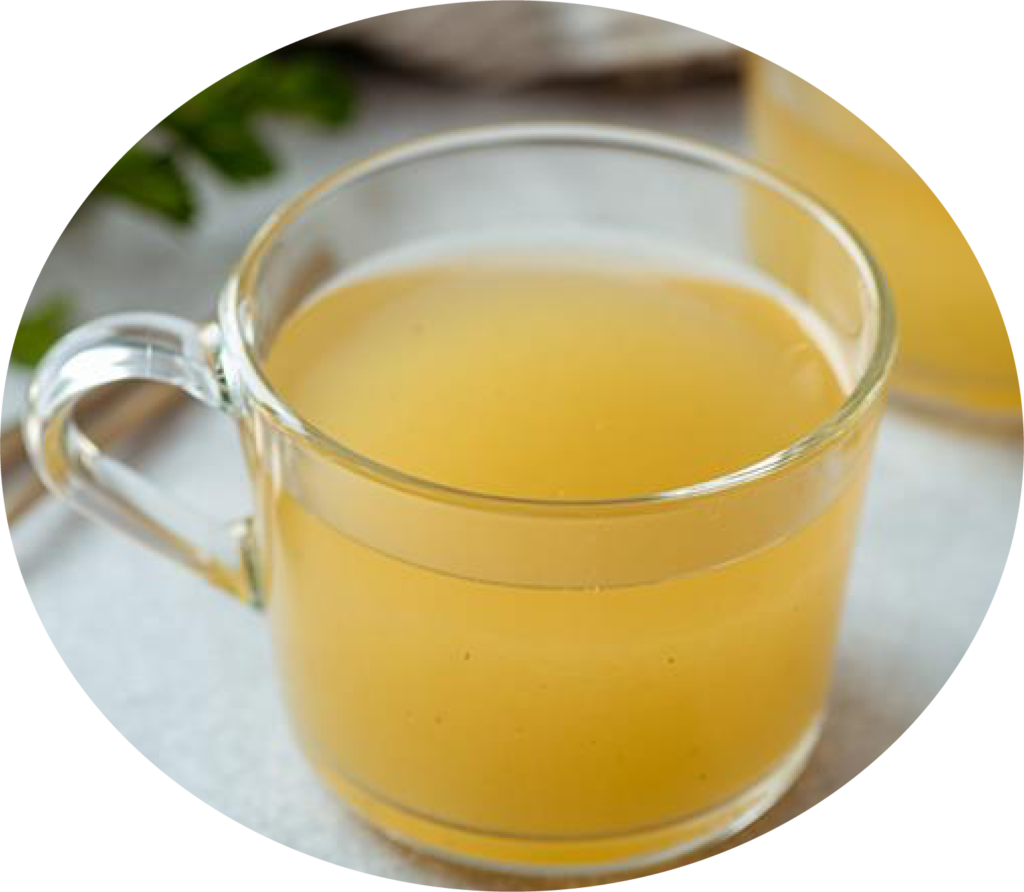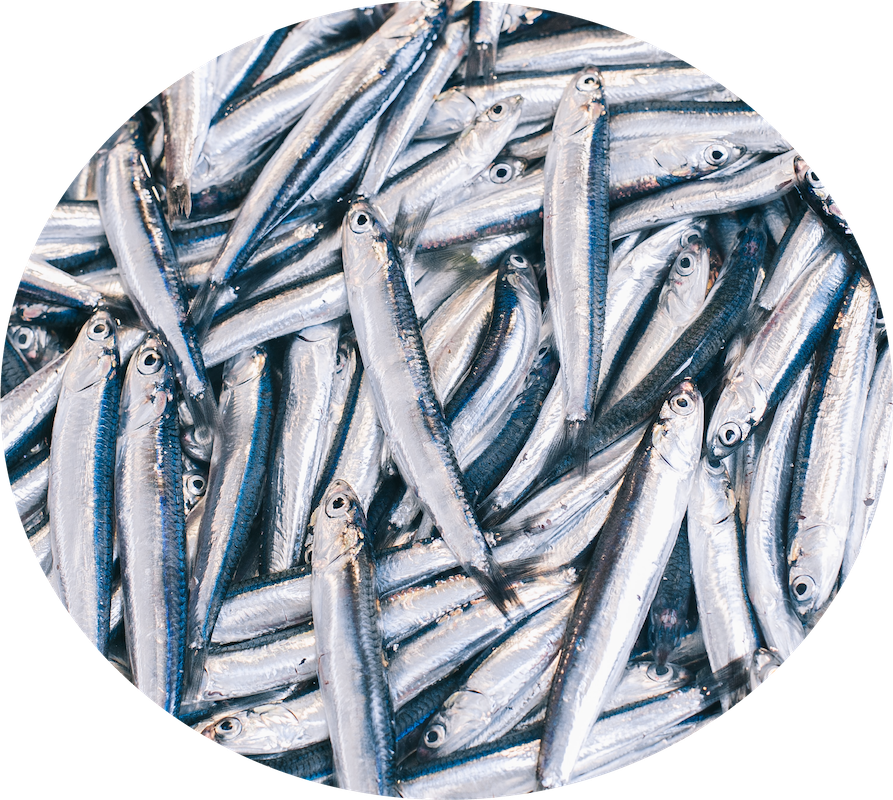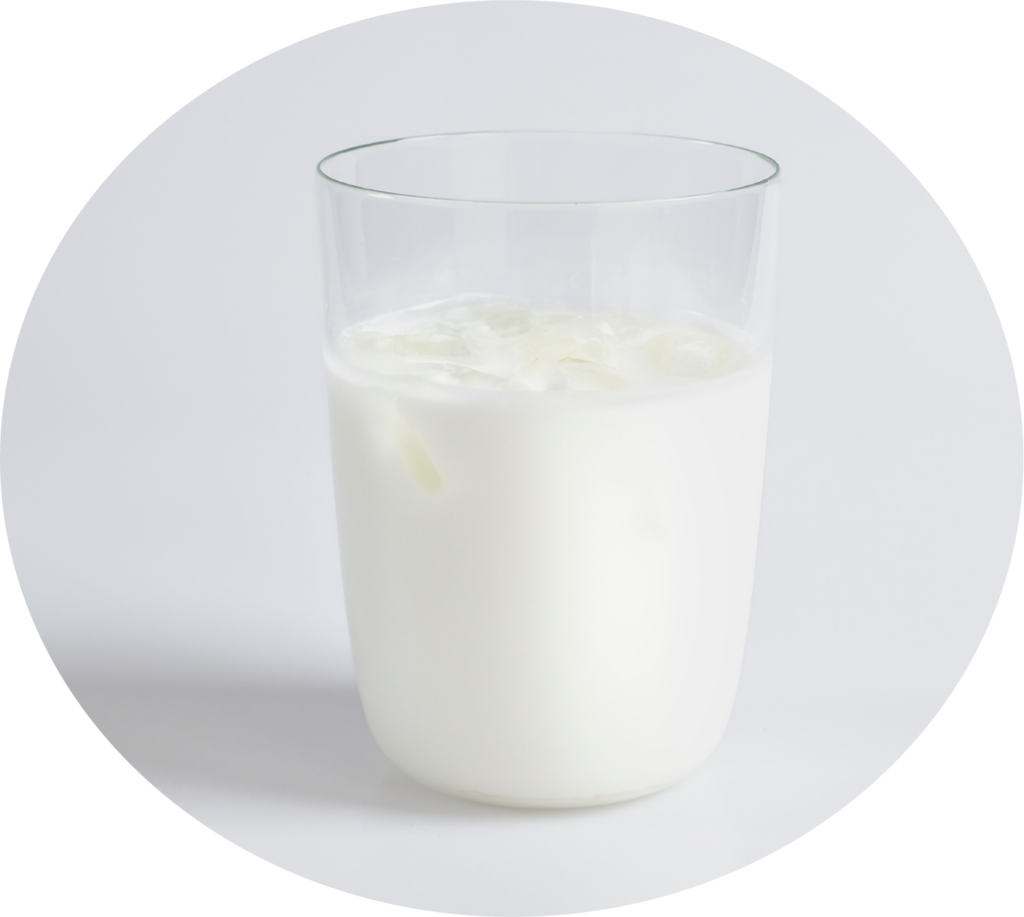Nutrients vs Ingredients
Where Other Diets Fall Short
Other industry diets meet the nutrient profiles needed to address a disease state but do so using poor-quality ingredients like meat meals, corn, and a lengthy list of synthetic nutrients.
We know that when an animal is sick, nutrition matters most, and that you can provide a therapeutic kidney diet with whole foods.
Compare Our Ingredients
Medicus
Chicken, Rice, Egg, Chicken Liver, Flaxseed, Chicken Gizzards, Ground Krill, Cranberries, Blueberries, Potassium Salt, Sea Salt, Ground Egg Shell, Chitosan, Mixed Tocopherols, Zinc Proteinate, Niacin, Riboflavin, Thiamine, Vitamin B12, Pyridoxine, Folic Acid, & Kelp
Brewers Rice, Chicken, Corn Gluten Meal, Chicken Fat, Dried Beet Pulp, Egg Product, Soy Protein Isolate, Fish Oil, Chicken Liver Flavor, Lactic Acid, Potassium Citrate, Flaxseed, Calcium Sulfate, L-Arginine, Choline Chloride, DL-Methionine, Calcium Carbonate, L-Lysine, Taurine, L-Threonine, vitamins (Vitamin E Supplement, L-Ascorbyl-2-Polyphosphate (source of Vitamin C), Niacin Supplement, Thiamine Mononitrate, Calcium Pantothenate, Pyridoxine Hydrochloride, Vitamin A Supplement, Riboflavin Supplement, Biotin, Vitamin B12 Supplement, Folic Acid, Vitamin D3 Supplement), Iodized Salt, L-Tryptophan, L-Carnitine, minerals (Ferrous Sulfate, Zinc Oxide, Copper Sulfate, Manganous Oxide, Calcium Iodate, Sodium Selenite), Mixed Tocopherols for freshness, Natural Flavors, Beta-Carotene.
Brewers Rice, Tuna, Whole Grain Corn, Soybean Meal, Animal Fat Preserved With Mixed-Tocopherols, Corn Gluten Meal, Potato Protein, Dried Egg Product, Brewers Dried Yeast, Animal Liver Flavor, Powdered Cellulose, Fish Oil, Calcium Carbonate, Potassium Chloride, Potassium Citrate, L-Lysine Monohydrochloride, Salt, Choline Chloride, Taurine, Vitamin E Supplement, DL-Methionine, Zinc Sulfate, Ferrous Sulfate, Thiamine Mononitrate (Vitamin B-1), Manganese Sulfate, Niacin (Vitamin B-3), Vitamin A Supplement, Calcium Pantothenate (Vitamin B-5), Copper Sulfate, Riboflavin Supplement (Vitamin B-2), Vitamin B-12 Supplement, Pyridoxine Hydrochloride (Vitamin B-6), Folic Acid (Vitamin B-9), Vitamin D-3 Supplement, Calcium Iodate, Biotin (Vitamin B-7), Menadione Sodium Bisulfite Complex (Vitamin K), Sodium Selenite.
Deboned Chicken, Peas, Pea Starch, Potato Starch, Dried Egg Product, Pea Protein, Chicken Fat (preserved with Mixed Tocopherols), Natural Flavor, Flaxseed (source of Omega 3 and 6 Fatty Acids), Powdered Cellulose, Fish Oil (source of DHA-Docosahexaenoic Acid), Potassium Citrate, Calcium Carbonate, DL-Methionine, L-Threonine, Dehydrated Alfalfa Meal, Potatoes, Taurine, Dried Chicory Root, Pea Fiber, Alfalfa Nutrient Concentrate, Choline Chloride, L-Lysine, Turmeric, Vitamin E Supplement, L-Tryptophan, Sweet Potatoes, Carrots, Natural Flavor, L-Carnitine, preserved with Mixed Tocopherols, Iron Amino Acid Chelate, Zinc Amino Acid Chelate, Glucosamine Hydrochloride, Vegetable Juice for color, Salt, Chondroitin Sulfate, Niacin (Vitamin B3), Copper Amino Acid Chelate, Blueberries, Cranberries, Barley Grass, Parsley, Dried Kelp, Yucca Schidigera Extract, Manganese Amino Acid Chelate, Thiamine Mononitrate (Vitamin B1), L-Ascorbyl-2-Polyphosphate (source of Vitamin C), Biotin (Vitamin B7), Vitamin A Supplement, Pyridoxine Hydrochloride (Vitamin B6), Calcium Pantothenate (Vitamin B5), Riboflavin (Vitamin B2), Ferrous Sulfate, Zinc Sulfate, Vitamin D3 Supplement, Vitamin B12 Supplement, Folic Acid (Vitamin B9), Copper Sulfate, Dried Yeast, Dried Enterococcus faecium fermentation product, Dried Lactobacillus acidophilus fermentation product, Copper Amino Acid Chelate, Dried Aspergillus niger fermentation extract, Dried Trichoderma longibrachiatum fermentation extract, Dried Bacillus subtilis fermentation extract, Manganese Sulfate, Sodium Selenite, Oil of Rosemary, Calcium Iodate.
Proof in the Numbers
The Medicus Kidney Support diet for cats meets all the nutrient requirements needed for a CKD diet with numbers comparable to, if not better, than leading diets within the industry.
